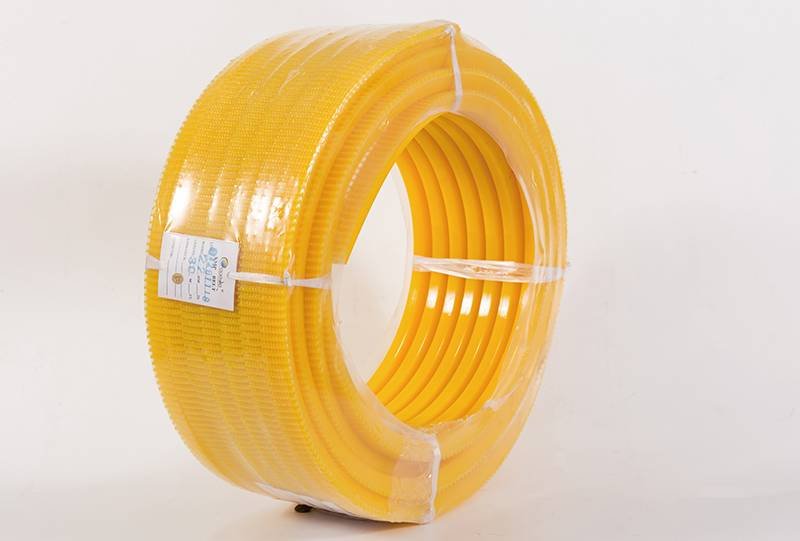In the medical industry, equipment reliability, precision, and performance are critical. Conveyor belts play a vital role in ensuring smooth and efficient operation of various medical devices and equipment. Thermoplastic Polyurethane (TPU) belts have emerged as a top choice in medical applications due to their superior performance, durability, and flexibility. These belts offer exceptional wear resistance, cleanliness, and precision—qualities that are essential in medical equipment for handling sensitive materials or processes. In this article, we explore why TPU belts are becoming a preferred option in the medical industry.
Why TPU Belts Are Ideal for Medical Equipment
1. High Precision for Sensitive Applications
Medical equipment often requires precise and consistent movement of components or products, such as in diagnostic machines, lab equipment, and pharmaceutical production lines. TPU belts offer excellent dimensional stability, ensuring precise and reliable performance in high-precision applications.
- Accurate material handling – TPU belts ensure the accurate transfer of sensitive materials, minimizing the risk of contamination or damage.
- Stable operation – Their low stretch characteristics ensure consistent movement, making them ideal for precision applications like automated testing equipment or packaging lines in the medical field.
2. Cleanliness and Hygienic Properties
In the medical industry, maintaining cleanliness is paramount to prevent contamination and ensure patient safety. TPU belts are non-porous, making them easy to clean and highly resistant to bacterial growth.
- Antimicrobial coatings – TPU belts can be treated with antimicrobial coatings to further enhance hygiene standards in critical medical environments.
- Non-absorbent surface – The smooth, non-porous surface of TPU belts prevents liquid absorption, reducing the risk of contamination during medical processes.
3. Chemical and Temperature Resistance
Medical equipment often operates in environments that involve exposure to various chemicals and extreme temperatures, such as sterilization processes or cleaning procedures. TPU belts are highly resistant to chemicals, oils, and temperatures, ensuring their durability and performance even in challenging conditions.
- Durable in harsh environments – TPU belts withstand sterilization chemicals, cleaning agents, and high-temperature cycles without degrading.
- Long-term performance – Their resistance to environmental factors ensures that TPU belts continue to perform reliably throughout their lifecycle, reducing the frequency of replacements and downtime.
4. Flexibility and Durability
Medical equipment is often designed to work in tight spaces and requires components that can endure continuous motion. TPU belts are known for their flexibility, enabling smooth operation even in intricate setups.
- Reduced maintenance – TPU belts are wear-resistant and can handle constant motion without significant degradation, ensuring they last longer than many other materials.
- Long lifespan – Due to their excellent wear and tear resistance, TPU belts need fewer replacements, which leads to cost savings over time.
5. Compliance with Medical Standards
For medical equipment to be used in regulated environments, it must meet strict safety and quality standards. TPU belts are compliant with various medical-grade certifications and standards, such as FDA approval for materials in contact with food and pharmaceuticals.
- Regulatory compliance – TPU belts can be manufactured to meet FDA and EU regulations, ensuring that they are safe for use in medical and pharmaceutical applications.
- Safe for direct contact – TPU’s non-toxic and safe nature makes it an ideal choice for medical devices and equipment that come into contact with drugs or biological substances.

Applications of TPU Belts in Medical Equipment
- Automated Pharmaceutical Production – TPU belts are used for the precise handling of pills, vials, and other pharmaceutical products during the manufacturing and packaging processes.
- Diagnostic Equipment – In machines like MRI scanners, blood analyzers, and laboratory equipment, TPU belts ensure smooth and precise movement of components.
- Medical Device Assembly – TPU belts are ideal for assembly lines where consistent, high-precision movements are required for assembling medical devices.
- Sterilization and Cleaning Systems – TPU belts perform reliably during sterilization processes, such as autoclaving, due to their resistance to high temperatures and chemicals.
Conclusion
TPU belts offer unparalleled precision, flexibility, and durability, making them an ideal choice for a wide range of medical equipment applications. Their ability to maintain high performance under challenging conditions—such as exposure to chemicals, extreme temperatures, and constant motion—makes them a valuable asset in the medical industry.
At PENGDE NEW MATERIAL TECHNOLOGY CO., LTD, we provide high-quality TPU belts that meet the stringent demands of the medical industry. For more information about our TPU belts and how they can improve the performance of your medical equipment, contact us at pengde2@pengde-pu.com.


